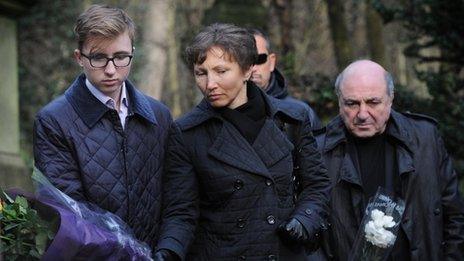Litvinenko inquest: UK, Russia 'conspiring for trade'
- Published
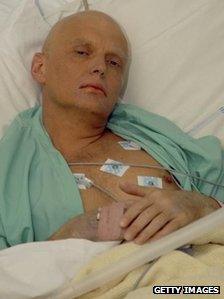
Alexander Litvinenko was poisoned in 2006 after meeting Russian contacts
Britain and Russia are conspiring to shut down the inquest into the death of Russian spy Alexander Litvinenko to preserve trade interests, a lawyer for his widow has said.
Foreign Secretary William Hague wants to exclude sensitive details relating to the former KGB agent's ties to MI6, a pre-inquest review was told.
But counsel for Marina Litvinenko said claims they posed a serious risk of harm to the public were wrong.
Mr Litvinenko died in London in 2006.
The 43-year-old was poisoned with polonium-210 while drinking tea, allegedly at a meeting with two Russians - former KGB contacts Andrei Lugovoi and Dmitry Kovtun - at the Millennium Hotel in London's Grosvenor Square.
Ben Emmerson QC, representing Marina Litvinenko, said the Foreign Secretary's grounds for signing a public interest immunity (PII) certificate to prevent certain details relating to the case from being placed in open court for security reasons should be treated with the "greatest degree of scepticism".
Attempts to withhold evidence pointed towards a conspiracy at the highest levels of government, he said.
Almost no details of what areas the government wanted covered by the certificate had been disclosed, and if material suggesting the Russian state was behind the killing was withheld it would defeat the purpose of the inquest.
"The British government, like the Russian government, is conspiring to get this inquest closed down in exchange for substantial trade interests which we know (Prime Minister David) Cameron is pursuing," he said.
"We know nothing about why these applications are being made and we are dancing in the dark."
He also said the process was delaying the inquest. It was due to formally open on May 1, more than six years after Mr Litvinenko died.
The pre-inquest review, presided over by Sir Robert Owen, a judge sitting as coroner, is looking into the scope of the inquest into his death.
The PII application is being opposed by lawyers for Mr Litvinenko's widow, Marina, as well as media organisations, including the BBC.
Mr Emmerson said it was "probable" Mr Litvinenko's death had involved the Russian state.
He also told the coroner he should not allow the process to be "bogged down" by the "government's attempt to keep a lid on the truth".
Spanish spies
At an earlier pre-inquest hearing, Mr Emmerson said the Russian had been a paid agent of MI6 and argued the inquest should examine the secret service's relationship with him.
Sir Robert has said he will examine what was known of threats to Mr Litvinenko's life and also whether the Russian state was responsible for his death.
He has also agreed that a group representing Russian state prosecutors can be accepted as a party to the inquest process, which would allow it to cross-examine witnesses and examine evidence.
And he raised concerns at Tuesday's hearing that the start date for the inquest may be missed "due to the complexity of the investigation which necessarily precedes the hearings".
The pre-inquest legal review has previously heard that Mr Litvinenko was working alongside Spanish spies for MI6 in the days before his death.
British government documents that implied Russia was behind the 43-year old's death were also revealed. Moscow has denied any involvement.
Russia has refused to extradite main suspect, Mr Lugovoi, to the UK for questioning. He has also denied any involvement.
Neil Garnham, representing the Home Office, has told the review he could "neither confirm nor deny" whether Mr Litvinenko had been employed by British intelligence.
Proceedings were adjourned until Wednesday when Sir Robert is expected to announce whether the government should be required to shed light on the nature of the evidence it aims to conceal.
- Published13 December 2012
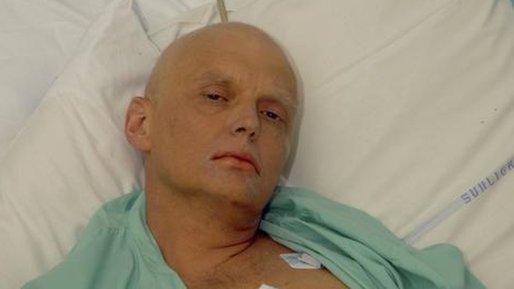
- Published21 January 2016
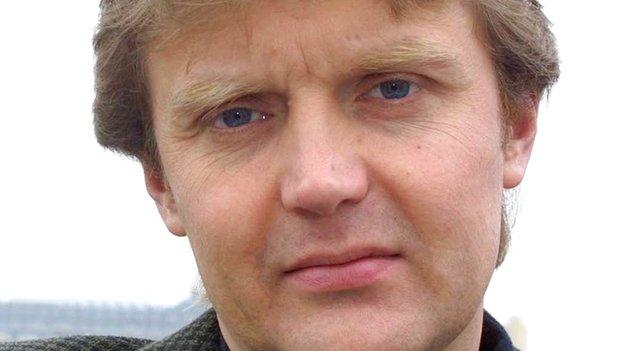
- Published2 November 2012
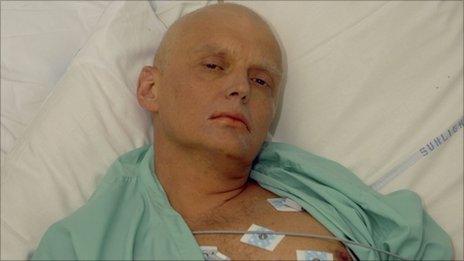
- Published20 September 2012
